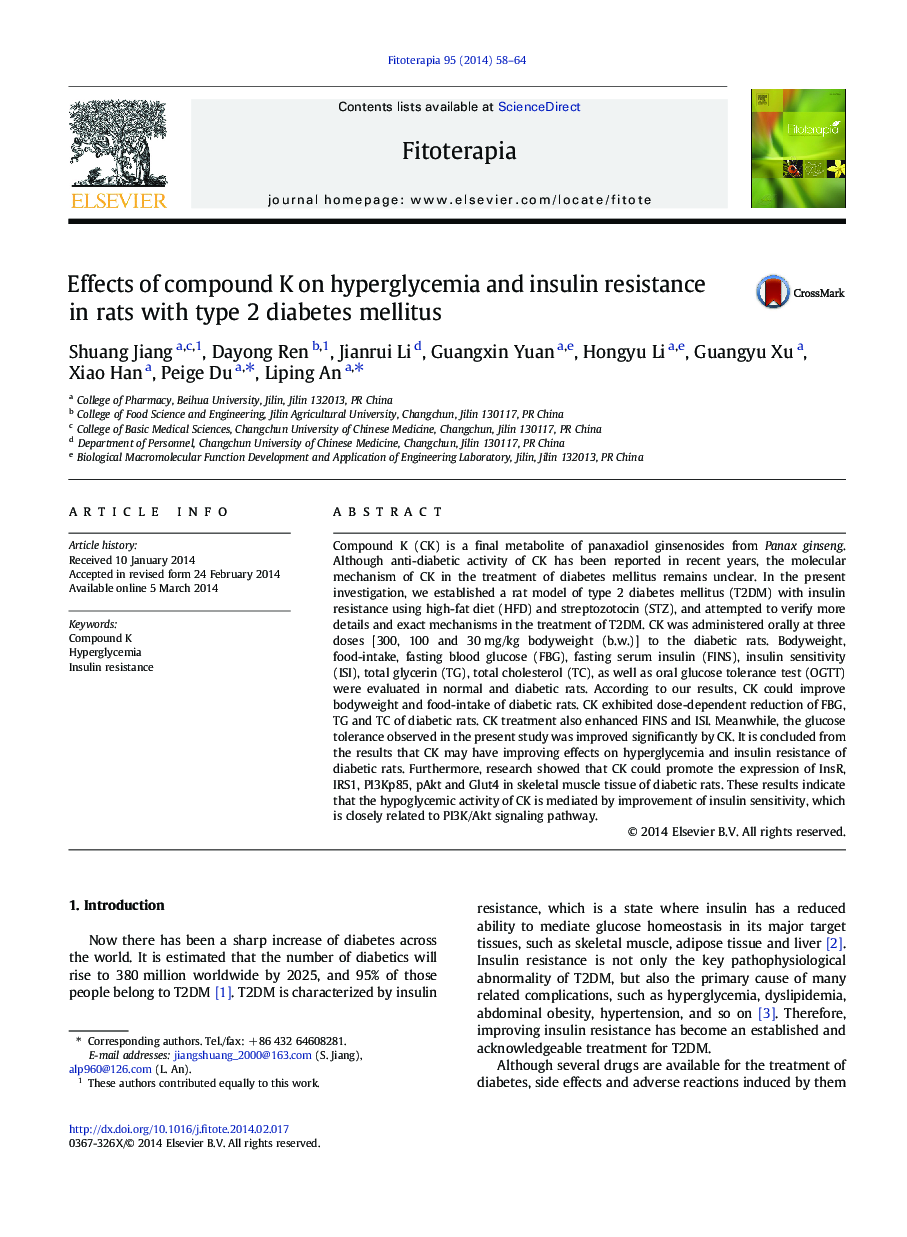| Article ID | Journal | Published Year | Pages | File Type |
|---|---|---|---|---|
| 5830896 | Fitoterapia | 2014 | 7 Pages |
Compound K (CK) is a final metabolite of panaxadiol ginsenosides from Panax ginseng. Although anti-diabetic activity of CK has been reported in recent years, the molecular mechanism of CK in the treatment of diabetes mellitus remains unclear. In the present investigation, we established a rat model of type 2 diabetes mellitus (T2DM) with insulin resistance using high-fat diet (HFD) and streptozotocin (STZ), and attempted to verify more details and exact mechanisms in the treatment of T2DM. CK was administered orally at three doses [300, 100 and 30Â mg/kg bodyweight (b.w.)] to the diabetic rats. Bodyweight, food-intake, fasting blood glucose (FBG), fasting serum insulin (FINS), insulin sensitivity (ISI), total glycerin (TG), total cholesterol (TC), as well as oral glucose tolerance test (OGTT) were evaluated in normal and diabetic rats. According to our results, CK could improve bodyweight and food-intake of diabetic rats. CK exhibited dose-dependent reduction of FBG, TG and TC of diabetic rats. CK treatment also enhanced FINS and ISI. Meanwhile, the glucose tolerance observed in the present study was improved significantly by CK. It is concluded from the results that CK may have improving effects on hyperglycemia and insulin resistance of diabetic rats. Furthermore, research showed that CK could promote the expression of InsR, IRS1, PI3Kp85, pAkt and Glut4 in skeletal muscle tissue of diabetic rats. These results indicate that the hypoglycemic activity of CK is mediated by improvement of insulin sensitivity, which is closely related to PI3K/Akt signaling pathway.
Graphical abstractDownload high-res image (46KB)Download full-size image
